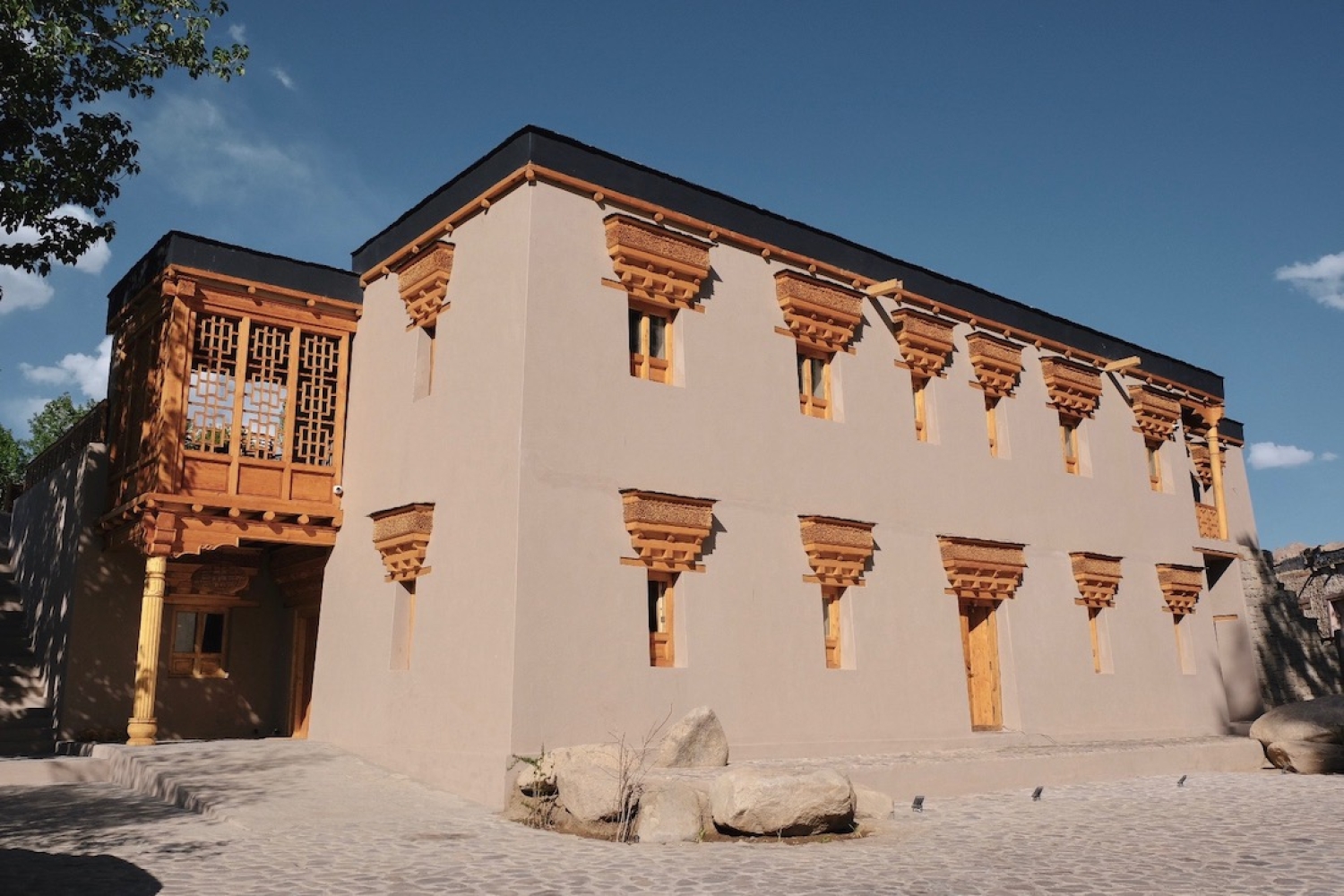

Identifying strongly with Ladakh, its language, culture and heritage, the boutique hotel Dolkhar was established to integrate a little piece of the region with the rest of the world while keeping at the fore their values of conscious, sustainable, and contextual travel. Inspired by the native area’s traditional values, Dolkhar’s building stands tall and exists more than a mere physical structure. It is, in fact, a physical manifestation of the team's ideas and desires beyond the confines of functionality. Neatly tucked away in Tukcha, at the heart of the main town, Leh, the boutique stay provides easy access to the city centre while also being remote enough to provide a tranquil experience away from the humdrum of the cityscape.
Comprising seven carefully constructed villas that represent Ladakh and the idea of community and sustainability, the property has locally sourced materials using indigenous techniques of construction and by artisans found in the region. The rooms at Dolkhar are a perfect reflection of how the locals experience the landscape of Ladakh considering the stone walls share the same colours as the mountains and the ceilings made of exposed talu ldungma are a reminder of the long stretches of poplar that come back to life in the spring every year. The villas also come with a rabsal, a Ladakhi balcony and a private patio on the ground floor.
“For instance, we have used the compressed stabilised earth blocks [CSEB] for our passive solar building, local willow and poplar wood for the roofs, and traditional columns and beams for structural support. Thus, ensuring continued operation even through the winter.” What the owner of Dolkhar, Rigzin Lachic has found most fulfilling through the entire process has been her collaboration with the artisans. Joining hands with over forty craftspeople from across different villages, the property boasts of interiors embellished with home grown techniques and crafts.
“We sourced customised cutlery from the metal artisans of Chilling Sumdha, traditional grain barrels or “dzems'' from artisans in Turtuk, some pots and ceramic figurines from Likir’s only two potters, our rugs, throws and cushion covers from the women weavers of Kharnakling and finally our sinks and some traditional crock pots from Ladakh’s only stone worker from Turtuk. All the wooden fixtures in the villas as well have been handmade by our carpenters from repurposed wood left from the construction.” For Rigzin apart from the ecological perspective for sourcing locally another aspect that stands out the most is her passion for revival of Ladakhi crafts. While most of the handicrafts in the region are being practiced by last generation artisans, there’s a dearth of young people in the indigenous techniques and appreciation for the existing artisans is not enough. There seems to be little hope for craft in Ladakh without intervention from both the community and the government according to the owner and to remedy the same she has also co-founded Haati, a social enterprise that works towards showcasing and creating a patronage for the craft in the valley and beyond.
Their gastronomical offering, Tsas serves the culinary confluence between modern haute and traditional Ladakh. A hyper local vegetarian restaurant set in an apple and apricot orchard within the resort, it incorporates produce from Dolkhar’s kitchen garden. The food at Tsas is also a reflection of the fundamentals of Dolkhar and the carefully curated menu was worked on for months before deciding upon the perfect melange that captures the essence of Ladakhi cuisine. Authentic and stimulating Dolkhar promises an experience akin to none.
This article is an all exclusive from our March EZ. To read more such articles, follow the link here.
Words Unnati Saini
Date 27-03-2023